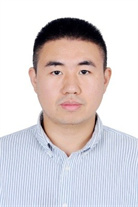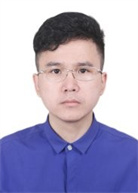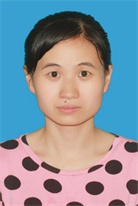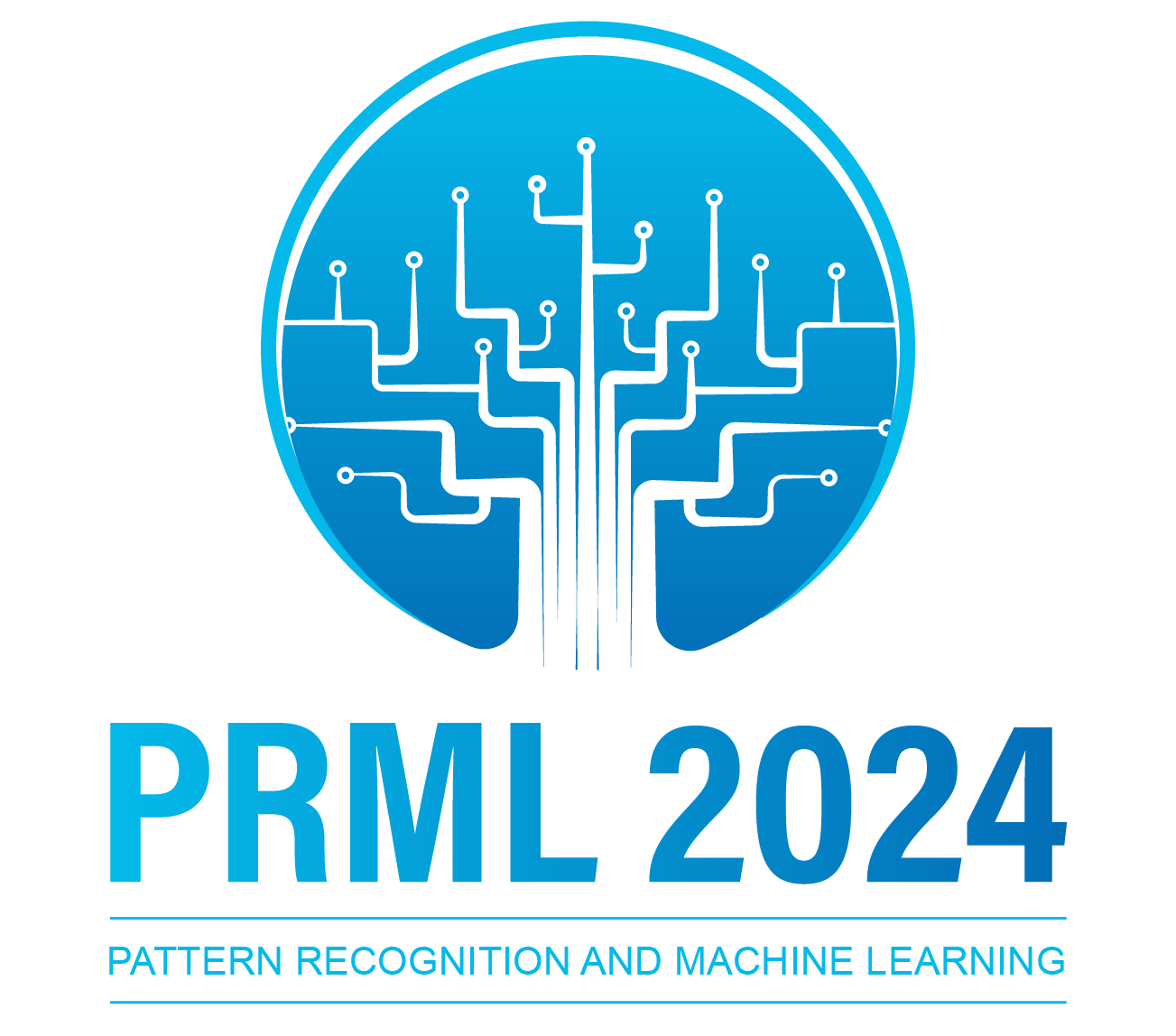INVITED SPEAKERS of PRML 2025

Prof. Sheng Huang
Chongqing University
Sheng Huang is a Professor and Doctoral Advisor at the School of Big Data and Software Engineering, Chongqing University, recognized as a Bayu Young Scholar and an ACM Chongqing Rising Star, with research focusing on medical image processing, pattern recognition in open environments, and intelligent industrial detection; he has authored or co-authored over 60 publications in highly respected venues including IEEE Transactions on Image Processing (TIP), IEEE Transactions on Information Forensics and Security (TIFS), IEEE Transactions on Neural Networks and Learning Systems (TNNLS), IEEE Transactions on Medical Imaging (TMI)、IEEE Transactions on Intelligent Transportation Systems (TITS), IEEE Transactions on Industrial Informatics (TII), ICCV, CVPR, AAAI, and IJCAI, making significant contributions to these fields; in addition, he serves as an Area Chair for prominent academic conferences such as IJCAI and PRCV, and holds leadership roles in multiple professional societies, including serving as Executive Committee Member in various technical committees under the China Computer Federation (CCF), China Society of Image and Graphics (CSIG), China Automation Society (CAS), China Association for Artificial Intelligence (CAAI), and China Simulation Federation (CSF).
Speech Title: "A Guided Wave Structural Monitoring Method based on Deep Transfer earning"
Abstract: Data-driven methodologies within structural health monitoring have garnered growing interest, with particular emphasis on the advancements in deep learning techniques, which have significantly propelled the progress of data-driven damage detection. Due to limited available guided wave samples and imbalance between data classes, this study reports a deep convolutional neural network-based transfer learning approach for the structure monitoring of switch rails using guided wave monitoring signals. A pretrained model based on Inception-ResNet-V2 was adopted and fine-tuned. Different methods for converting 1-D signals into 2-D images were investigated to find the optimal one that meets practical monitoring requirements. Affine transformations were used for data augmentation to improve generalization ability and to avoid the overfitting of the training model. Two sets of guided wave monitoring experiments were undertaken to assess the proposed approach in comparison to various traditional methods. The classification outcomes demonstrate the capability of the proposed method to detect damage in demanding scenarios, surpassing the performance of conventional methods.

Dr. Ji Gan
Chongqing JianZhu College
Ji Gan received the B.E. degree in software engineering from Huazhong University of Science and Technology, Wuhan, China, in 2015, and the Ph.D. degree in computer science from the University of Chinese Academy of Sciences, Beijing, China, in 2021. He is currently with the School of Computer Science and Technology, Chongqing University of Posts and Telecommunications, Chongqing, China. His research interests include pattern recognition, human-computer interaction, handwriting recognition and generation.
Speech Title: " Researches on Brain-Inspired In-Air Handwriting Human-Computer Interaction and Perception-Driven Handwriting Analysis"
Abstract: Human-computer interaction (HCI) technology aims to build natural communication bridges between humans and machines, having penetrated all aspects of human social life. With the advancement of metaverse technology, virtual reality is becoming increasingly prevalent in our daily life and thus makes HCI methods for virtual reality hold significant value. Since the evolution of HCI tends toward more intuitive and embodied interaction approaches, a novel HCI method based on in-air handwriting has garnered widespread attention in recent years. In-air handwriting enables users to write directly in three-dimensional space using their own hands to input arbitrary text commands or control hard devices, demonstrating considerable potential in fields like the metaverse and embodied intelligence. Nevertheless, in-air handwriting remains in its infancy with numerous limitations. We attempt to leverage brain-inspired structural perception and multimodal fusion technologies to overcome existing bottlenecks. This report presents our key findings on in-air handwriting HCI and perception-driven handwriting analysis techniques, explores the potential value and application prospects of in-air handwriting HCI, and provides a solid technical foundation and scientific basis for the next-generation human-computer interaction.

Dr. Yang Wei
Chongqing University of Posts
and Telecommunications
Yang Wei received the PhD degree in cybersecurity from Xidian University, in 2023. He is currently a lecturer at the College of Artificial Intelligence, Chongqing University of Posts and Telecommunications. His research interests include information and AI security, and deep learning. He has long been engaged in research on information and AI security, having undertaken projects such as the National Natural Science Foundation of China and the Chongqing Municipal General Project. He has published over 10 academic papers in authoritative journals and international conferences. He serves as a reviewer for conferences and journals including NeurIPS, ICML, ICLR, IEEE Transactions on Circuits and Systems for Video Technology (TCSVT), and Pattern Recognition Letters, and was honored as an Notable Reviewer for ICLR 2025.
Speech Title: “Adversarial Sample Attacks on Large Image Segmentation Models”
Abstract: As a frontier in visual technology, large image segmentation models have been widely adopted across industries, driving technological advancements. However, their deep learning architectures are vulnerable to adversarial attacks—malicious actors can exploit imperceptible perturbations to bypass model defenses, compromising prediction accuracy and data security. Current safety research remains insufficient. This study investigates core vulnerabilities of segmentation models under diverse security scenarios, simulating attackers' stealthy and stable behaviors to design two black-box attack strategies. It further explores cross-domain commonality-based attack methods to uncover shared threats among models. The findings aim to advance defense mechanisms, ensuring safe application of segmentation models across industries.

Dr. Yang Wei
Chongqing University of Posts
and Telecommunications
Yang Wei received the PhD degree in cybersecurity from Xidian University, in 2023. He is currently a lecturer at the College of Artificial Intelligence, Chongqing University of Posts and Telecommunications. His research interests include information and AI security, and deep learning. He has long been engaged in research on information and AI security, having undertaken projects such as the National Natural Science Foundation of China and the Chongqing Municipal General Project. He has published over 10 academic papers in authoritative journals and international conferences. He serves as a reviewer for conferences and journals including NeurIPS, ICML, ICLR, IEEE Transactions on Circuits and Systems for Video Technology (TCSVT), and Pattern Recognition Letters, and was honored as an Notable Reviewer for ICLR 2025.
Speech Title: “Adversarial Sample Attacks on Large Image Segmentation Models”
Abstract: As a frontier in visual technology, large image segmentation models have been widely adopted across industries, driving technological advancements. However, their deep learning architectures are vulnerable to adversarial attacks—malicious actors can exploit imperceptible perturbations to bypass model defenses, compromising prediction accuracy and data security. Current safety research remains insufficient. This study investigates core vulnerabilities of segmentation models under diverse security scenarios, simulating attackers' stealthy and stable behaviors to design two black-box attack strategies. It further explores cross-domain commonality-based attack methods to uncover shared threats among models. The findings aim to advance defense mechanisms, ensuring safe application of segmentation models across industries.

Dr. Shenhai Zheng
Chongqing University of Posts
and Telecommunications
Shenhai Zheng received his Ph.D. degree from the College of Computer Science, Chongqing University. He is currently a teacher at the College of Computer Science and Technology, Chongqing University of Posts and Telecommunications. The main research directions are intelligent computing, pattern recognition, image processing and machine vision.
Speech Title: “Intelligent Processing and Analysis for Multi-modal Medical Image”
Abstract: Multimodal medical images can reveal biological and tissue information of the human body from multiple perspectives. Effectively fusing complementary information and distinctive advantages across different modalities is crucial for enhancing segmentation performance. In recent years, although deep learning-based multi-modal medical image segmentation algorithms have garnered significant attention, extracting and integrating complementary information from multi-modal images to achieve precise segmentation remains a primary challenge. This talk will share our latest advancements in multi-modal feature extraction and fusion, as well as their applications and challenges in tumor diagnosis.

Dr. Tingting Xu
Chongqing University of Posts
and Telecommunications
Holding a Ph.D. from the University of Auckland, New Zealand, Dr. Xu serves as the Deputy Director of the Department of Software Theory and Engineering, School of Computer Science and Technology, Chongqing University of Posts and Telecommunications. He is an associate professor (senior engineer), master’s supervisor, talent introduced by Chongqing after returning from abroad, and an Information System Project Management Professional. Long - term focused on spatiotemporal big data mining, machine learning & AI, and intelligent agents. After returning to China, he has led 2 provincial - ministerial research projects, 1 provincial talent support project, 5 tobacco - industry - related scientific and technological projects, 1 open fund of the Guangdong - Hong Kong - Macao Smart City Joint Laboratory, 1 open research fund of the Key Laboratory of the Ministry of Natural Resources, and 1 scientific and technological innovation project of Chongqing Urban Management Bureau. With nearly 30 high - level papers as the first/corresponding author, including 10 papers in JCR Q1, cited over 500 times. He has won 3 national industry awards for scientific and technological progress and engineering practice.
Speech Title: “Study on Urban Triple-Space Expansion Simulation Based on Machine Learning and Spatiotemporal Big Data"
Abstract: This research endeavors to expound upon the study system of urban big data and intelligent models through illustrative case analyses, with a primary focus on the integration of urban spatiotemporal big data, the construction of intelligent models for urban land - use change, spatial information mining, and urban intelligent computing. As complex giant systems, cities necessitate the utilization of geospatial - temporal big data and artificial intelligence to accurately map the "production - living - ecological space" and simulate the dynamic evolution of the boundaries among physical, social, and information spaces. By taking Chongqing in China and Auckland in New Zealand as exemplars, traditional cellular automata and multi - agent models are refined. The impact of geospatial scales and human cognition on urban development is synthesized into transition rules. In conjunction with machine learning techniques, urban expansion is categorized into hierarchical levels based on geographical features and ethnic demographics. A landscape direction index is formulated to meticulously demarcate expansion areas according to the angle, distance, and area of urban sprawl, thereby establishing expansion development regulations tailored to diverse urban construction zones.

Dr. Yinli Tian
Chongqing University of Posts
and Telecommunications
Yinli Tian, Ph.D., is a Lecturer at Chongqing University of Posts and Telecommunications. Her research focuses on medical image analysis for anatomical structure/function, tumors, and traumatic critical injuries in emergency settings. She develops advanced intelligent computing tools and frameworks based on medical imaging to facilitate early diagnosis, assessment, disease prevention, and treatment. Her research findings have been published in internationally recognized journals such as IEEE Journal of Biomedical and Health Informatics, American Journal of Pathology, Computer Methods and Programs in Biomedicine, and Displays. She has participated in research projects funded by national key R&D programs, the National Natural Science Foundation of China, as well as provincial and municipal-level initiatives including the Guangdong Provincial Key R&D Program, Shenzhen Key Natural Science Foundation, and Chongqing Technological Innovation and Application Demonstration Program.
Speech Title: “Artificial Intelligence in Hepatocellular Carcinoma: Diagnostic and Therapeutic Advancements"
Abstract: Liver cancer remains a global health challenge characterized by high mortality rates and dismal prognosis, with hepatocellular carcinoma (HCC) accounting for 75-85% of primary liver malignancies. Despite diagnostic advancements through imaging modalities such as contrast-enhanced ultrasound, multiphase computed tomography (CT), and magnetic resonance imaging (MRI), histopathologic examination of biopsied tissue persists as the diagnostic gold standard. Meanwhile, surgical resection continues to be the cornerstone of curative treatment for eligible HCC patients. We systematically examines AI-driven innovations transforming HCC management:(1) Weakly Supervised Histopathological Analysis. We present cutting-edge frameworks leveraging weakly supervised learning for automated tumor region detection in whole-slide images (WSIs), addressing challenges in gigapixel-level pathological data interpretation. (2)Surgical Planning Optimization Advanced AI architectures enabling precise functional zone annotation are discussed, emphasizing their role in enhancing preoperative simulation and intraoperative navigation accuracy. (3) Future Directions. We propose an integrative AI paradigm combining radiogenomic correlations, liquid biopsy analytics, and personalized therapeutic response prediction, envisioning a closed-loop intelligent system spanning early detection to precision intervention.
Previous INVITED SPEAKERS

Dr. Nie Xin
Chongqing JianZhu College, China
Nie Xin, a teacher at Chongqing JianZhu College. Ph.D. from City University of Macau, previously worked as a research and development engineer at Changan Automobile andZhongji Zhonglian Engineering Co., Ltd., with years of practical experience in computer system development. My main research directions are the integration and application of deep learning in medical big data, federated learning, and other related fields. Published multiple academic journal papers and participated in multiple National Natural Science Foundation funded projects.

Assoc. Prof. Weixu Liu
Anhui Medical University, China
Weixu Liu is currently an associate professor, deputy director and master supervisor at the department of computer science, Anhui medical University. He received his Ph.D. degree from Zhejiang University in 2022. He is a senior member of the China Instrument and Control Society and a member of the Chinese Society for Vibration Engineering. He has obtained more than ten authorized national invention patents, more than twenty utility model patents and more than ten national computer software copyrights. His research interests mainly include machine learning, non-destructive evaluation, and structural health monitoring. He serves as a reviewer for many journals and conferences. He has published over 20 peer-reviewed journal articles. His research has been supported by both government and corporations.

Prof. Yu Qi
Zhejiang University, China
Yu Qi is a tenure-track professor and doctoral supervisor at the MOE Frontier Science Center for Brain Science and Brain-machine Integration, and the Affiliated Mental Health Center & Hangzhou Seventh People's Hospital, Zhejiang University School of Medicine, Hangzhou, China. Her research interests include brain-computer interface, artificial intelligence, and brain-like computing. She has proposed a series of innovative methods and systems for the dynamic modeling of brain information. She has published more than 30 academic papers and representative studies are published in NeurIPS, IJCAI, Trans. on BME, TNSRE. She is the young editor of Cyborg and Bionic Systems, the topic editor of Frontiers in Neuroscience, the program committee member of top artificial intelligence conferences NeurIPS, IJCAI, and ICML, and the reviewer of top journals such as TNNLS, TBME, and TNSRE.

Assoc. Prof. Qiufeng
Wang
Xi’an Jiaotong-Liverpool University, China
Dr. Qiufeng Wang is currently a senior associate professor, the head of Department of Intelligent Science at School of Advanced Technology in Xi’an Jiaotong-Liverpool University (XJTLU), and the Director of Suzhou Municipal Key Lab of Cognitive Computing and Applied Technology. He received the Ph.D degree in Pattern Recognition and Intelligence Systems from Institute of Automation, Chinese Academy of Sciences (CASIA), and won Presidential Scholarship of Chinese Academy of Sciences. After that, he worked at the National Laboratory of Pattern Recognition (NLPR) in CASIA, and then Microsoft. Dr. Wang joined XJTLU in Feb. 2017. His research interests include pattern recognition and machine learning, specially document analysis and recognition. Dr. Wang has published 70+ papers, including IEEE T-PAMI, Patten Recognition, ICCV, ICML, and published one book about deep learning in Springer. His research has been supported by both government and industry, including NSFC young programme, NSFC general programme, and CCF-Tencent.

Assoc. Prof. Ji-Zhe
Zhou
Sichuan University, China
Ji-Zhe Zhou, Associate Research Professor at the School of Computer Science, Sichuan University, master supervisor; graduated from the University of Macau with a doctorate in 2021; studied and lived in top universities in Macau, Hong Kong, and South Korea since undergraduate. He joined Sichuan University as Associate Research Professor in 2021. His main research interests include the application of deep learning in the field of multimedia content security and video synthesis. He has published many papers on multimedia content security filed in top CCF-A international conferences such as ACM MM, ACL, and IJCAI, as well as CCF-A international top journals such as TIFS, TNNLS, and TASLP. He devoted himself to the field of automatic filtering of video and live content for the purpose of content security, and expanded the application of deep learning in the content security of multimedia information. He participated in a number of projects jointly funded by the Ministry of Science and Technology of China and the Macao Science and Technology Development Fund (FDCT) and made academic reports at several international conferences.

Prof. Hongtao Lu
Shanghai Jiao Tong University, China
Hongtao Lu is a professor at the department of computer science and engineering, Shanghai Jiao Tong University. His research interests include machine learning, deep learning, computer vision and pattern recognition. He has authored or co-authored more than 100 research papers in journals and conference such as IEEE Transactions, Pattern Recognition, CVPR, ECCV, AAAI etc. His published papers have gotten more than 1300 citations from Web of Science, and more than 4000 citations from Google Scholar, his H-index is 37. He had served as PIs for dozens of projects from NSFC, Ministry of Science and Technology, Ministry of Education, Municipal Government of Shanghai, and industries. He has been continuously listed among the most cited researchers in computer science in China by Elsevier from years of 2014 to 2018. He also got several research awards from the government.

Assoc. Prof. Feng Liu
Shenzhen University, China
Feng Liu is currently an Associate Professor at School of Computer Science & Software Engineering, Shenzhen University. She obtained her B.Sc. and M.Sc. degrees both from Xidian University, Xi’an, Shaanxi, China. She received her Ph.D. degree in computer science from the Department of Computing at the Hong Kong Polytechnic University in 2014. Her research interests include pattern recognition and image processing, especially focus on their applications to fingerprints. Dr. Liu has published more than 40 papers at some international journals and conferences, including IEEE TIP, TFIS, TCYB, PR, ECCV, AAAI, etc., and participated in many research projects either as principal investigators or as primary researchers. She is a reviewer for many renowned field journals and conferences and a member of the IEEE.

Dr.
Kok Chin Chai
NEUON, Malaysia
Dr. Kok Chin Chai is a currently a technopreneur who received his PhD degree and completed his postdoctoral research in 2016 and 2017, respectively. He was recognized as professional technologist by Malaysia Board of Technology in 2021. He has developed novel AI models over 8 years, resulting in over 10 scientific publications in collaboration with team members at Deakin University and Universiti Malaysia Sarawak. He managed several industrial-university research projects in Malaysia and Taiwan. By aggregating his research skills and business experiences, he has founded FLINKEN (Automated Manufacturing Factory) and NEUON (AI consultancy and solutions provider). Currently, he is the CEO of NEUON.

Prof. Fan Liu
Hohai University, China
Fan Liu is currently a professor of Hohai University. He received his B.S. degree of networking and Ph.D. degree of technology for computer applications from Nanjing University of Science and Technology (NUST) in 2009 and 2015. From September 2008 to December 2008, he studied at Ajou University in South Korea. From February 2014 to May 2014, he worked at Microsoft Research Asia. His research interests include computer vision, pattern recognition, and machine learning. Dr. Liu also serves as a reviewer of IEEE TNNLS, IEEE TKDE, ACM TIST, Information Sciences, Neurocomputing, Pattern Analysis and Application.

Prof. Grienggrai
Rajchakit
Maejo University, Thailand
Grienggrai Rajchakit was born in 1981. He received the B.S. (Mathematics), Thammasat University, Bangkok, Thailand, in 2003. He received the M.S. (Applied Mathematics), Chiangmai University, Chiangmai, Thailand, in 2005. He was awarded a Ph.D. (Applied Mathematics), King Mongkut’s University of Technology Thonburi, Bangkok, Thailand, in the field of mathematics with specialized area of stability and control of neural networks. Currently, he is working as a lecturer at Department of Mathematics, Faculty of Science, Maejo University, Chiang Mai, Thailand. He was the recipient of Thailand Frontier author Award by Thomson Reuters Web of Science in the year 2016 and TRF-OHEC-Scopus Researcher Awards by The Thailand Research Fund (TRF), Office of the Higher Education Commission (OHEC) and Scopus in the year 2016. His research interests are complex-valued NNs, complex dynamical networks, control theory, stability analysis, sampled-data control, multi-agent systems, T-S fuzzy theory, and cryptography, etc. Dr. Grienggrai Rajchakit serves as a reviewer for various SCI journals. He has authored and co-authored more than 149 research articles in various SCI journals.

Prof. Yaohua Wang
National University of Defense Technology, China
Yaohua Wang is a Professor and PhD advisor in the School of Computer Science of National University of Defense Technology. He was a Visiting Professor of ETHZ (2016-2017).His current research interests include computer architecture, compiler, and memory subsystem. He has published in prestigious conferences (such as ISCA(2018,2021), MICRO(2018, 2020), HPCA(2013), CVPR(2020), and DAC(2022)) and top-tier journals (such as IEEE TC(2018), IEEE TPDS(2021), and IEEE TCAD(2020)). His research received Best Paper Award at IEEE CAL 2012.

Dr. Van Thanh Huynh
Deakin University, Australia
Dr. Van Thanh Huynh is an early career researcher and lecturer at Deakin University. He received his PhD degree in robotics and control systems in 2019. Leveraging the nexus of applied mathematics and engineering, he is inspired to develop enabling technologies and engineering methodologies that assist in efficiently and effectively solving robotic, interdisciplinary, and science-driven problems. He has published in prestigious journals, including SIAM Journal on Control and Optimization, IEEE Transactions on Circuits and Systems, IEEE Systems Journal, etc. His research is recognised with Deakin University awards. He has successfully attracted competitive funding from both industry and not-for-profit organisations.
